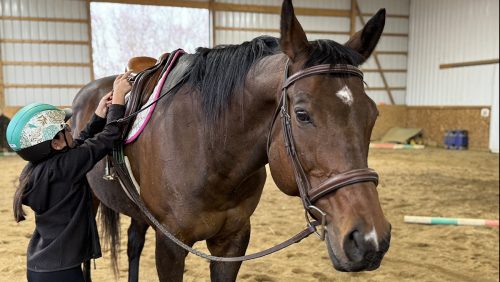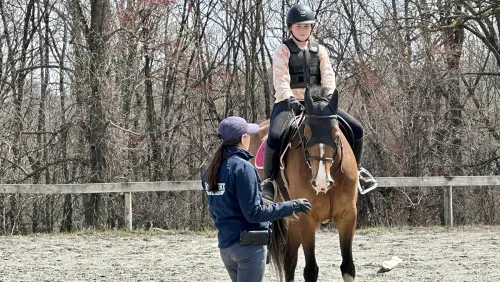My father gave me lots of things over the years, but it is what he didn’t give me that defines the woman I’ve become. My dad had a remarkable life, and he made it a priority to build my character and foster my independence from an early age.
Father’s Day, to me, is a time to appreciate how hard some men try to improve the lives of their children and to be there for their kids when they struggle with their own paths in life.
My dad was born in 1932, and was one of seven kids. He lived in rural Louisiana in a small home with a room he shared with his four brothers. He walked miles to school, no matter the weather. He was expelled from high school for fighting when he jumped in to help a friend that was getting a terrible beating. From an early age, my father held the conviction that you do what is right, even if it means you suffer.
After being expelled, he worked to help support the other kids in the family, having odd jobs like a “soda jerk” at the local drugstore to pay the bills. When he finally took his GED, he scored a 98/100, near perfect. He got drafted into the army and became a sharpshooter, serving in the Korean War as a military policeman.
Fifty years after his expulsion from high school, my dad retired from running the production plant of the largest newspaper in Louisiana, The Advocate. He succeeded in life despite his disadvantages because he never thought a job was above or below him, and he learned because he thirsted for knowledge, knowing it was intimately connected to opportunity. My dad was not given much in life, and his experiences shaped how he raised me.
Working For It
No one in my family had ever spent time with horses, but I was fascinated by them and started taking riding lessons when I was 3. As all riders know, there is no ceiling on horse expenses. It was a hard line for my father to walk, as he wanted to give me a happy childhood but also to teach me about the value of a dollar and ensure that I did not have a false sense of entitlement to luxuries.
He arranged for me to clean stalls, groom horses, unload hay, and anything else I could do at the barn to work off lessons. When I was 9 he finally caved and bought me a horse, a $500 unbroken 9-year-old Arabian, but he made it clear that that was the extent of his investment.
If we had unlimited funds I know he would have built me the barns I designed on my notebook paper when bored in class. He would have bought me the horses that were advertised in the Chronicle. He would have driven me in a new truck and glistening trailer to every show. But, like most families, we didn’t have unlimited funds. And so he bought me what he could, a cheap horse, and told me that if I wanted anything badly enough I would find a way to get it.
I had to make money to support my habit, so in seventh grade my dad built me a “storefront” out of four pieces of plywood and a metal roof. He placed it at the end of our driveway, and encouraged me to start my own business.
My first attempt at a business was designing jewelry. Dad invested $10 in beads and string, but after a couple weeks of sitting there and waving down the occasional car, I had just covered the $10 investment. This was not going to support horses.
Dad told me to try something else. With my parents gone one day and me desperate for lessons over an upcoming Easter holiday, I took to raiding my father’s rose gardens. They were his pride and joy, and I went out and clipped every gorgeous bloom and arranged bouquets, which sold out quickly and were pure profit.
On a high from my accomplishment and not yet to my goal, I tore through my closet to decide which clothes I could do without (all but the riding ones!). I hauled those out to my storefront and sold each piece for 10 cents.
When my parents got home, their rose gardens and my closet were empty, but I proudly waved the money needed for lessons! My mother had a meltdown over the roses, and wondered aloud how on Earth we would replace all the clothes, but dad just smiled. He could have bought me those lessons, but he taught me initiative instead.
ADVERTISEMENT
Horse Show Dad
High school was rough, because I was a teenager and my parents were good parents. Riding was both expensive and dangerous. I broke my first bone in eighth grade and dad was the only one that supported me returning to riding. I got my first horrific concussion, complete with memory loss that was never regained, and dad defended my choice to ride again.
I made stupid teenage decisions: I didn’t practice as consistently as I should, I chose social events over riding commitments. Dad sat me down and brutally reminded me of the sacrifices that he was making and his expectation that I do the same. I argued with him endlessly, but he was right, my priorities were inconsistent.
He could have given me endless support and overlooked my lapses in judgment, but instead he taught me about accountability and discipline.
In college I decided to take a year off to pursue a working student position and my dream of competing in the North American Young Rider Championships, despite never having jumped around a novice clean. We argued. He insisted that if I left college I would not return to school. He felt I was not showing appreciation for my education—something he was denied in his youth.
In the end, I was able to get my scholarship to allow a gap year, and so he agreed. He could have given me a free pass to follow my dreams, but instead he taught me to keep my education as a top priority and to always have a plan B.
That year he really became a horse show dad in his own way. He taught me how to drive a trailer by making me ride in the back of it while he steered around a parking lot. To this day I am one of the smoothest trailer drivers I know! He drove six to 12 hours each way to meet me at competitions. He walked around the cross-country with me, even though his age was showing and he moved slowly.
He could untie any knot, maintain any engine, and rig up anything I needed from hay string. He was the best boot polisher I have ever seen, a remnant of the military.
He had lot of horse-dad faults. For example, ever the frugal man, he purchased the first model of Prius in his enthusiasm for gas mileage. It was the quietest car in electric mode, and he had a terrible habit of driving around the show grounds (due to his age) and accidently terrifying unsuspecting victims who were out hand-walking their horses.
He would get entirely too close to them from behind, and then suddenly the horses and their leaders would notice and startle violently. He never stopped accidently doing that, even in the dark with his headlights off. He also would pull up to the competition barn and, if he didn’t see me, start honking wildly while yelling my full name.
Just Do It
He was unforgiving of my lapses in commitment. If ever he thought I was not 100 percent invested in training, he was the first to point it out. At one show, I missed out on a needed qualifier when I skipped a jump in show jumping. He reminded me endlessly that, expenses totaled, it was a $1,150 mistake.
Worse, the only show left on the calendar was the Pinetop Thanksgiving show, so we spent Thanksgiving driving nine hours and eating lunch at a Denny’s and dinner, exhausted, at a Waffle House.
While it wasn’t an ideal scenario, we laughed and had a great dinner and got that last qualifier done. He always expected my best effort, but he helped me recover when I made mistakes.
ADVERTISEMENT
When at the end of my working student year I was getting a medal put around my neck at the North American Young Rider Championships, dad was there taking pictures and waving. He celebrated my accomplishments in life like no one else, but he held my feet to the fire to do what I said I was going to do.
He didn’t operate in shades of grey, and while it led to conflict, in the end it led to me being a person who simply does things in lieu of talking about them or explaining why they aren’t feasible or the timing isn’t right or how I have a certain disadvantage or, or, or. He taught me to judge people by what they do, not what they promise, and to be the kind of person others can rely on.
The Right Thing
Not long after he turned 75, my father’s heart began to drift into atrial fibrillation, which led to many trips to the hospital, kisses good luck, and him being shocked with paddles to “restart” his heart. The bruises on his chest lasted for weeks after each incident. Eventually, his body hurt everywhere, and he had a hard time doing the things he loved.
He could have a surgery to burn some of the electrical impulses inside his heart, but it had tremendous risk. He told me that he would rather die than live halfway, and so he had the surgery.
Three days after the surgery, his heart stopped and, while it was revived 22 minutes later, his brain was damaged beyond repair. He always told me he did not want to live on “machines,” and before the surgery wrote in no uncertain terms that he did not want to be on life support.
I fought to honor his wishes, and after being removed from life support he passed away on Thanksgiving with me by his side all day, holding his hand. I was 22 years old, and his core conviction had become mine: you do what is right for others, even if it means you suffer.
Every Father’s Day I celebrate that I had a dad who loved me with everything he had, who expected more from me than I expected from myself, and who showed me that you simply chase your dreams with an aggression few know and, whether you reach them or not, you reach happiness.
Life isn’t meant to be lived halfway, or it isn’t worth living at all. So for those lessons, thanks Dad.
Thanks for all you gave me, but more than that, for all the things you didn’t give me. Thanks for making me work to build my own dreams, instead of learning to wait for someone else to supply them. Thanks for telling me no, and letting me go without some luxuries so that I was not lost in entitlement and led to spend my years just trying to buy the next best thing. Thanks for not building me a barn, but for instead building my character and my compassion.
Thanks for being my father.
One of the Chronicle’s bloggers, Kristin Carpenter juggles her riding with running her own company, Linder Educational Coaching, running the shows and events at Morningside Training Farm in The Plains, Va., and riding. She has two horses now—In A Trance and Lizzie. She grew up in Louisiana and bought “Trance,” a green off-the-track Thoroughbred, as a teenager. Together, they ended up competing at the North American Young Riders Championships and the Bromont CCI**. She’s now bringing another OTTB, Lizzie, up through the ranks.














